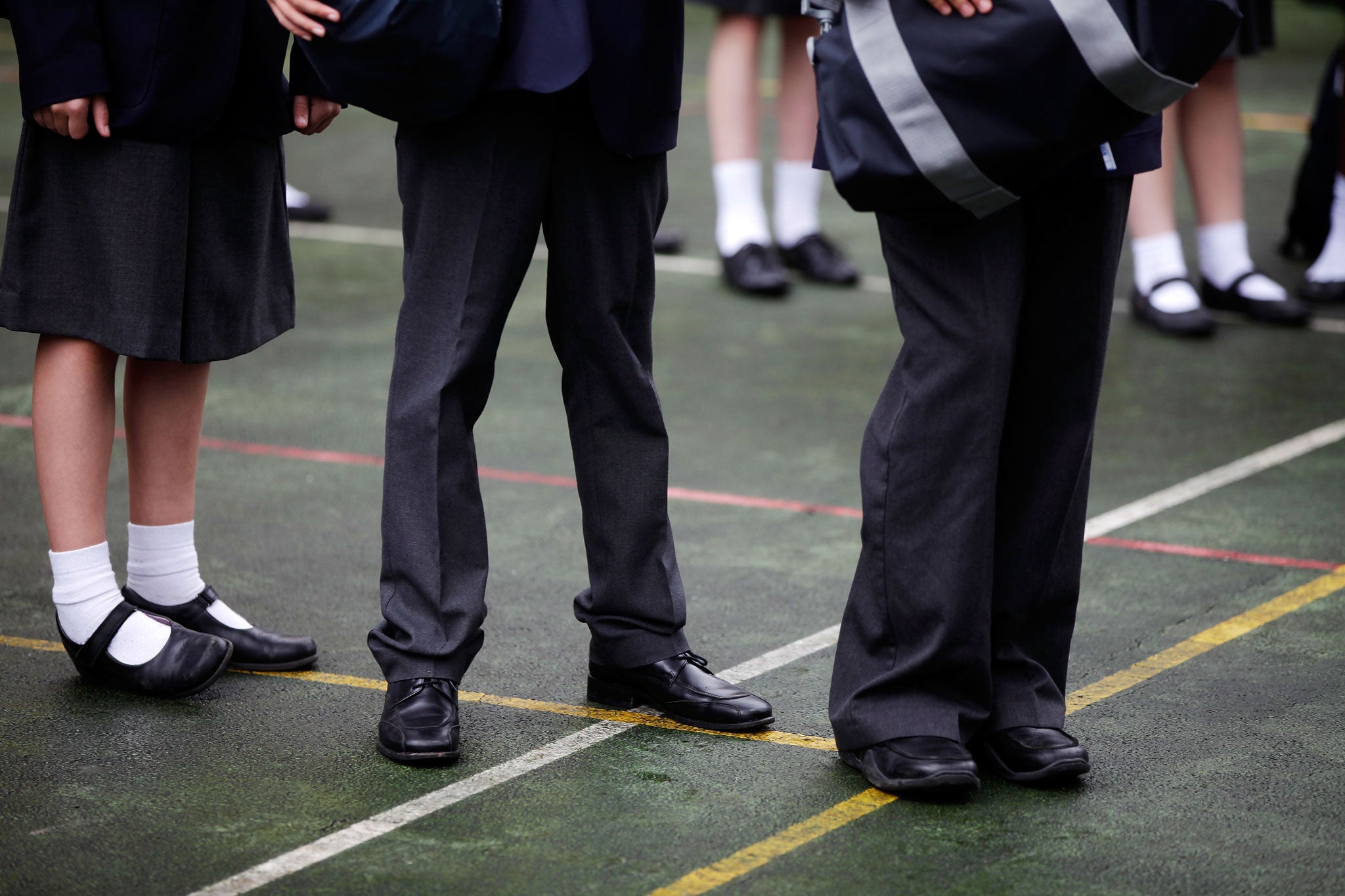Rise in grammar school pupils is selective education ‘by stealth’
Teachers’ union leaders say increasing number of selective places is not best way to raise standards

Your support helps us to tell the story
From reproductive rights to climate change to Big Tech, The Independent is on the ground when the story is developing. Whether it's investigating the financials of Elon Musk's pro-Trump PAC or producing our latest documentary, 'The A Word', which shines a light on the American women fighting for reproductive rights, we know how important it is to parse out the facts from the messaging.
At such a critical moment in US history, we need reporters on the ground. Your donation allows us to keep sending journalists to speak to both sides of the story.
The Independent is trusted by Americans across the entire political spectrum. And unlike many other quality news outlets, we choose not to lock Americans out of our reporting and analysis with paywalls. We believe quality journalism should be available to everyone, paid for by those who can afford it.
Your support makes all the difference.A group of leading state grammar schools is planning a major increase in pupil numbers – as selective education continues to expand despite the ban on new schools.
The five grammar schools run by the King Edward VI Foundation are seeking to enrol a further 130 pupils to the state schools from September, The Independent can disclose.
In addition, the foundation intends to increase the number of pupils from disadvantaged backgrounds at the two independent schools it runs – by increasing the amount of money offered in scholarships and subsidised fees by £3m over the next seven years. At present, it funds 300 pupils at the two schools.
The plans will fuel concern among grammar school opponents about the expansion of selective education by stealth. Teachers’ union leaders say that increasing the number of selective school places is not the best way to raise standards because the 11-plus test comes too early to make a decision about their future.
But the foundation is taking on board criticism of grammar schools in a report by the Sutton Trust education charity last week – in which it was suggested they favoured children from more affluent backgrounds – by launching a drive to recruit gifted pupils in disadvantaged areas.
Research by the trust showed children from private prep schools were four times more likely to obtain places nationally than those on free school meals. This is despite the fact that only 6 per cent of that age group go to prep schools while 16 per cent qualify for free school meals.
The five King Edward VI state grammar schools operated by the foundation are all in Birmingham : Aston, Camp Hill school for Boys, Camp Hill School for Girls, Five Ways and Handsworth.
John Claughton, headmaster of the foundation, said: “This is a significant, if not historic, move by the Foundation.
“Our independent schools are two of the most socially and ethnically mixed independent schools in the country and we are deeply committed to accessibility.”
The expansion plan comes at a time when the number of grammar school pupils is growing, despite the fact that the number of grammars has remained at 164 for the past 20 years because of a ban on new schools.
The number of grammar school pupils went up by 32,000 during the lifetime of the Blair government. This trend has continued under the Coalition – particularly in Sevenoaks, Kent, where permission has been granted for a satellite of an existing grammar school to be opened.Grammar school campaigners have been predicting for some time now that their numbers would be expanding – particularly in Birmingham and Lincolnshire, where they are heavily oversubscribed.
John Collins, secretary to the governors of the foundation, said: “We are increasing admission to our five free grammar schools for 2014 under the existing selection criteria but we aim to implement changes that will make all of our schools more accessible from 2015.”
He added: “The Foundation wants to ensure that all parents and schools with naturally gifted and talented children are aware of the opportunities.
“In addition, those talented children from less privileged backgrounds need to have the same chances as other children: the lack of awareness and the opportunities they offer does not sit comfortably with our charitable purposes.”
Join our commenting forum
Join thought-provoking conversations, follow other Independent readers and see their replies
Comments